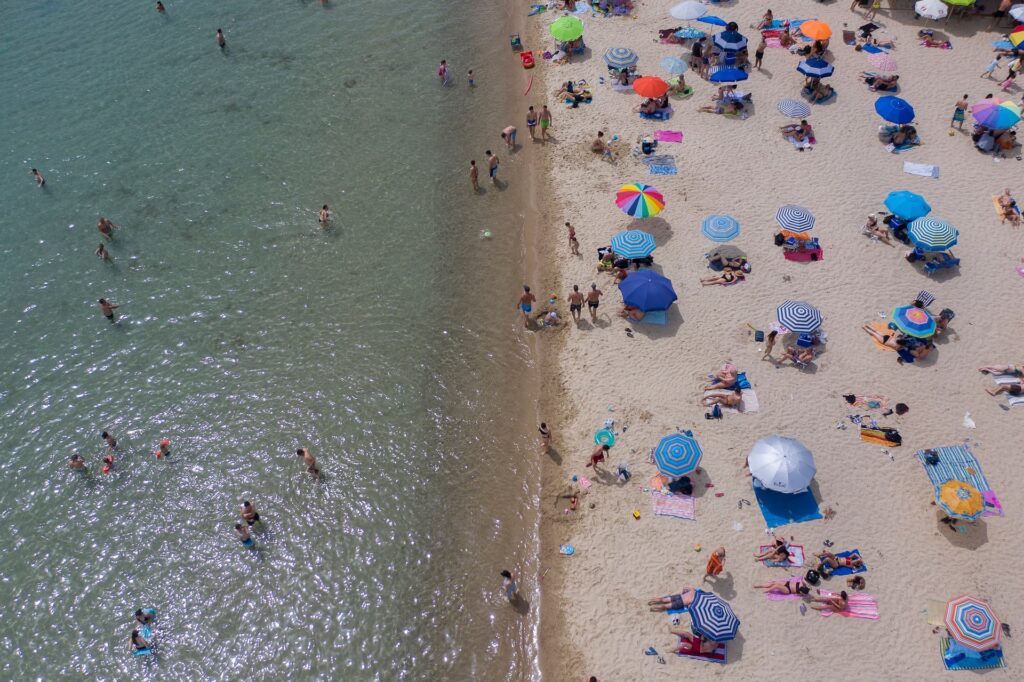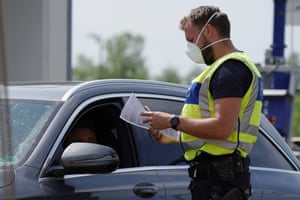We lived the European dream. Will any politician stand up for open borders?
THE GUARDIAN – Millions of us built our lives on the promise of free movement. Under cover of coronavirus, that dream is disappearing…
Millions of us built our lives on the promise of free movement. Under cover of coronavirus, that dream is disappearing…
They said he was German, others Italian, but then again he might have been French. We may never know the true nationality of “patient zero” in Europe. And it doesn’t much matter, because the true patient zero in our continent is Europe itself.

From the first detection of the virus on European territory, Europe has been in a coma.
Long lockdowns and home confinement concealed the gravity of the patient’s condition. With the freedom to move around even within countries taken away, few dared to cross borders. Now, as countries ease restrictive measures, Europe’s true state of health is becoming clear.
This is a dystopian outcome for millions of EU citizens who live in – or regularly commute to – another EU member state. With only a handful of countries reopening their borders, an unprecedented patchwork of national restrictions, including border controls and quarantine rules, continues to make travel across the continent practically impossible. After weeks of home confinement, many of us remain trapped in our country of residence or in that of origin, unable to cross borders again. Some of us can’t visit families, rejoin their loved ones, go to their places of work, or even get home.
While EU member states have the legal right temporarily to reintroduce internal border controls for reasons of public protection, and to lift them again, their decisions – as the French president Emmanuel Macron pledged – “must be taken as Europeans, at the European level, because it’s at this level that we’ve constructed our freedoms and protections”.
Yet despite a timid attempt by the European commission to coordinate the reopening of unrestricted cross-border movement within the union, the Schengen common-travel area remains in limbo, along with the lives of millions of EU citizens. If restrictions are easing, borders are not falling.
Most EU countries maintain controls and quarantine regulations on new entrants. As Spain imposes 14 days quarantine on all arrivals, including those from the Schengen area, France reciprocates by imposing it on all arrivals from Spain. Denmark is opening its borders to Germany, but not to Sweden – despite Sweden’s southernmost region having a lower infection than across the Oresund bridge in Copenhagen.
This chaotic mosaic of measures not only lacks any solid health justification – as repeatedly stated by the WHO – but also contradicts what the European Union is about.
EU citizens have the right to the same legal treatment across the union, free from any form of discrimination. So when France imposes mandatory quarantine on those arriving from Spain, but not from other countries, it is actually discriminating among EU citizens. This is equally true for Portugal whose borders are selectively reopening vis-a-vis “those countries with the greatest number of Portuguese”. A similar discriminatory pattern also exists in Hungary which exempts from its border controls the nationals of the Czech Republic, Poland, Germany, Austria, and Slovakia. Proposed travel bubbles, such as the Baltic bubble – allowing free travel between across the three Baltic countries also raise discriminatory concerns.
Letting EU countries re-establish borders was wrong in the first place. Border controls – as well as selective quarantine regimes – reflect an artificial, misleading attempt at resorting to nationality as the dividing line between the healthy and unhealthy. The nation state is not the right geographical or administrative unit with which to counter a virus that is not only borderless, but also doesn’t spread uniformly within any country’s territory. That’s why the EU recommended lifting restrictions “in areas with a comparable epidemiological situation” – in other words regions, not countries.
Ultimately the maintenance of border checks reveals an alarming lack of trust among EU countries, instigated by provisional data that lacks any comparability on how each of them handled the pandemic. Unwinding these different national measures will take some time and leave scars on “patient Europe”. As such, they risk fuelling nationalist sentiments that were diluted by decades of European integration.
Border-free holidays
As the summer approaches, the reopening of Schengen is driven more by the urge to let holidaymakers and tourists spend money than the need to ensure that EU citizens can pursue cross-border lives. But a border-free Europe is not the prerogative of tourists and interrail travellers. Free movement is an existential precondition for millions of citizens living, commuting, parenting and therefore regularly travelling between jurisdictions.
The aim should not be the return to the status quo but to update and strengthen the travel-free zone to avoid it being suspended again.

We Europeans were sold a dream. We were told that our existence could transcend the geographical boundaries of our native region and nation state. That dream actually came true for many of us. It found expression in a new existential space in the interstices of European states. Yet that fluid and geographically promiscuous experience of life and work shared by millions of citizens – be they seasonal fruit-pickers, students, professionals or jobseekers – is all of a sudden threatened by the inability of the European project to safeguard its own achievements.
As the European dream is abruptly interrupted, we don’t even know when, how and from whom to reclaim it. This suggests that behind the health and financial crisis caused by Covid-19 lies a deeper and overlooked democratic emergency.
Read more articles on the Covid-19 crisis by Alberto Alemanno
After 70 years of unprecedented socio-economic interdependence, no national politician – not even among EU leaders – is accountable either to citizens living beyond their own countries’ borders or to EU “mobile” citizens, those who exercise their right to move countries, who lack political representation.
It is telling that virtually no national or EU leader has lived the European dream by experiencing it herself. Being the product of national electoral processes, our political representatives systematically lack a “European reflex” even when facing pan-European challenges.
This might have already cost lives, and it has certainly damaged livelihoods. Not to mention the impact on the European project itself.
Yet, there’s hope. Covid-19 has produced a unique emotionally shared experience that might soon translate – if the latest Franco-German recovery plan is adopted – into a shared political response. The pandemic could prompt a truly long-overdue constitutional moment for Europe. If EU leaders don’t seize it – by realigning political Europe with its pan-European realities – it will be on us – European citizens – to take over.